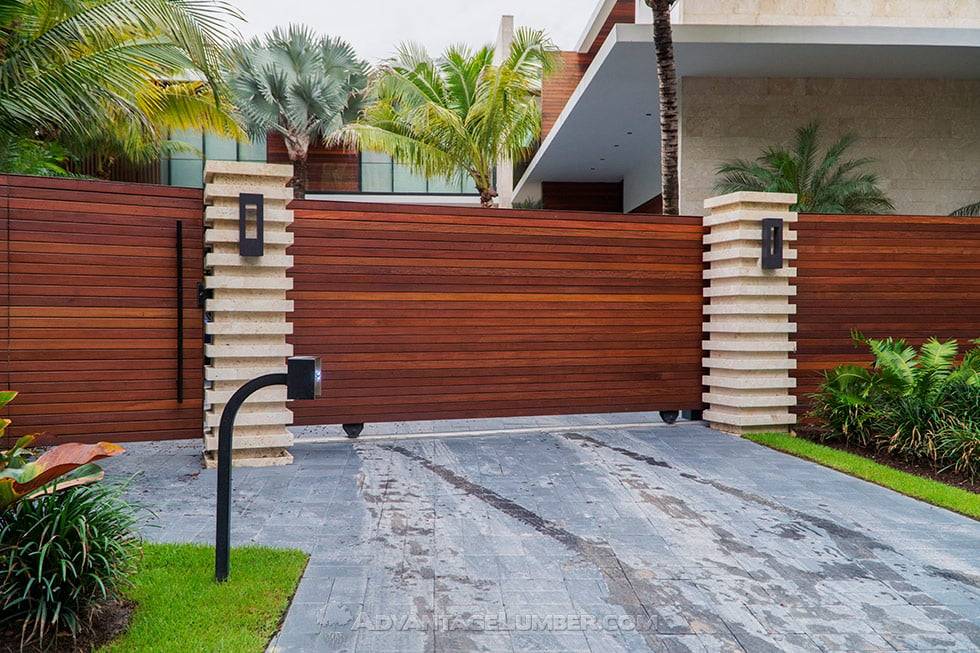When it comes to building a wood fence, selecting the right type of wood is crucial for ensuring durability, aesthetics, and long-term performance.
While there are various wood species available, each with its own set of characteristics, the most common choices fall into two categories: softwoods like pressure-treated pine and cedar, and premium hardwoods like Ipe, Cumaru, and Tigerwood.
Softwoods
Pressure-Treated Pine
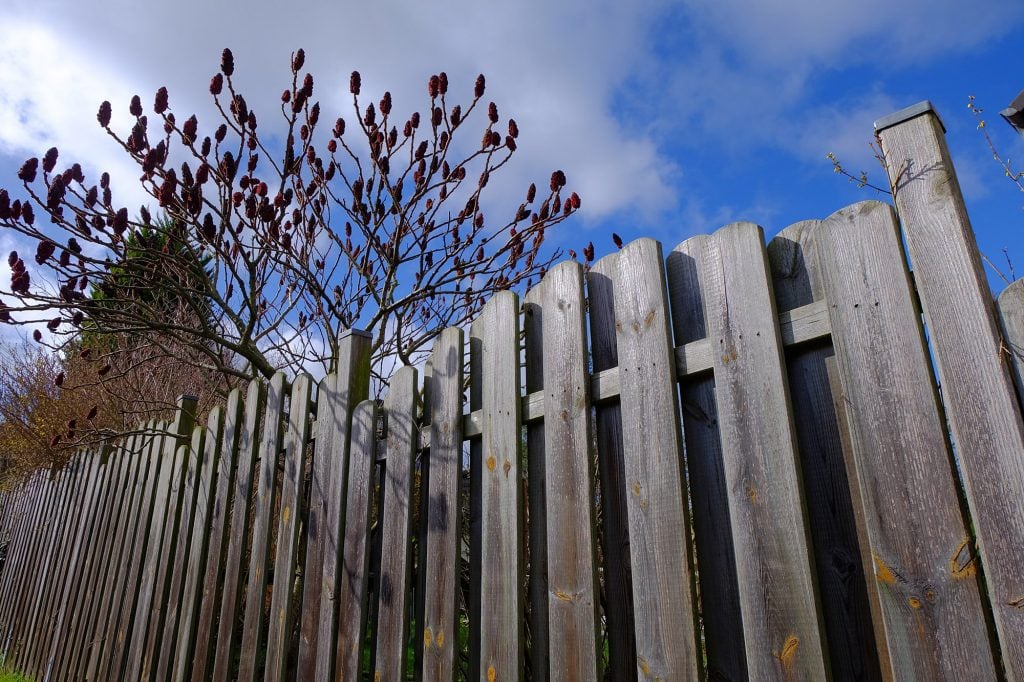
Pressure-treated pine is a popular choice for wood fences due to its affordability and availability.
Pros:
- Cost-effective: It is one of the most economical options for fencing.
- Durability: The pressure-treatment process makes it resistant to rot, decay, and insects.
- Versatility: It can be easily painted or stained to match any aesthetic.
Cons:
- Maintenance: Requires regular maintenance, such as staining or sealing, to maintain its appearance and longevity.
- Warping and Shrinking: It is prone to warping and shrinking over time, especially if not properly maintained.
Cedar
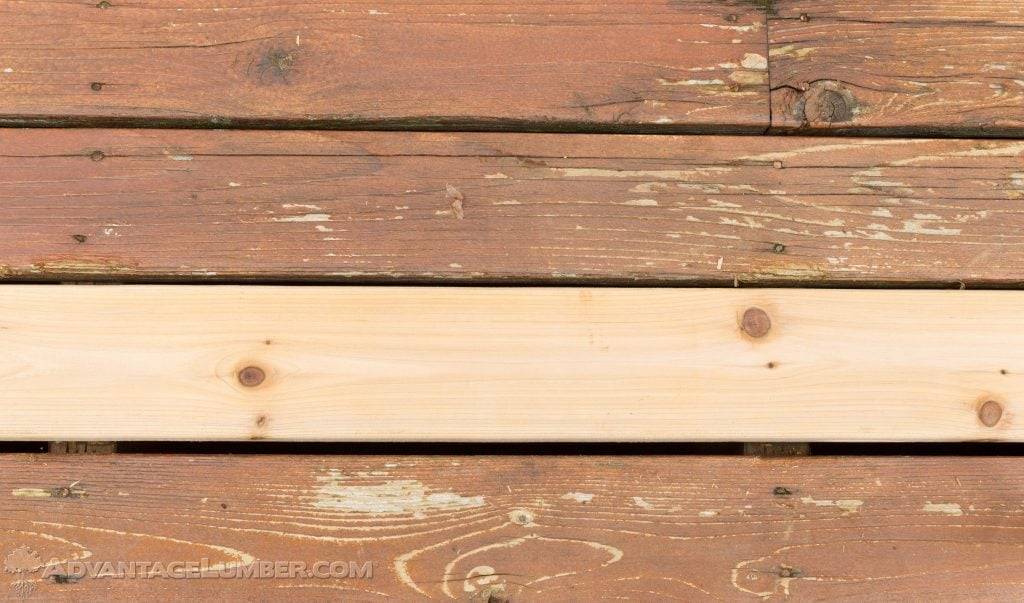
Cedar is another common choice for wood fencing, known for its natural beauty and resistance to decay.
Pros:
- Aesthetics: It has a naturally rich, warm color and appealing grain pattern.
- Natural Resistance: Cedar has natural oils that make it resistant to rot, decay, and insects.
- Durability: It is a durable option that can last for many years with proper care.
Cons:
- Cost: It is more expensive than pressure-treated pine.
- Maintenance: Requires regular maintenance to retain its natural color, or it will turn to a silver-gray patina over time.
Premium Hardwoods
Ipe
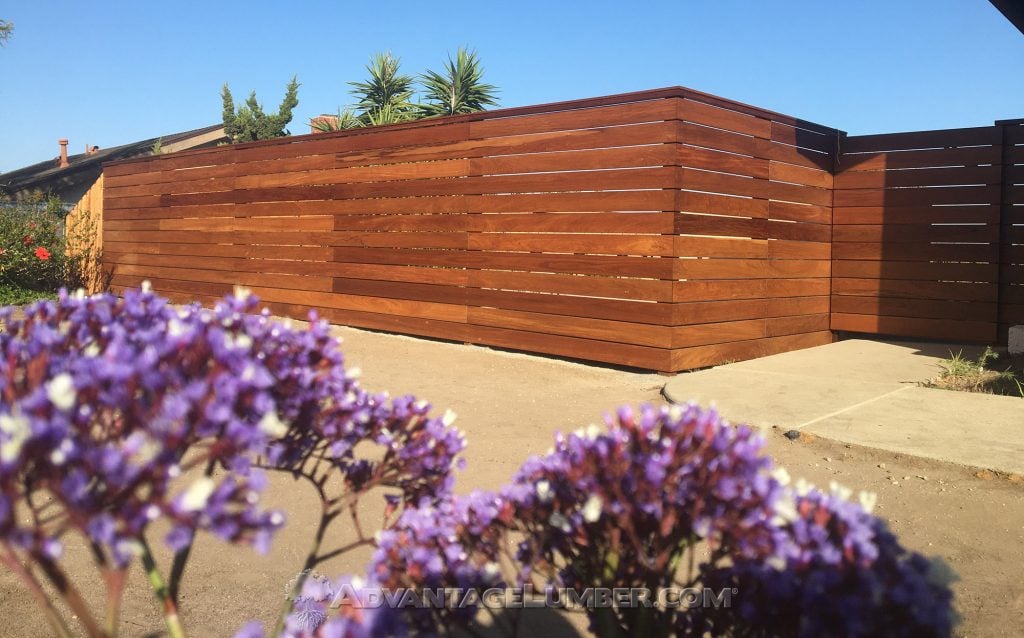
Ipe is a premium hardwood known for its exceptional durability and longevity.
Pros:
- Durability: It is incredibly durable and resistant to rot, decay, and insects.
- Low Maintenance: Requires minimal maintenance compared to softer woods.
- Aesthetics: Has a rich, dark brown color that weathers gracefully over time.
Cons:
- Cost: It is one of the most expensive wood options for fencing.
- Installation: It is dense and hard, making it challenging to work with during installation.
Cumaru
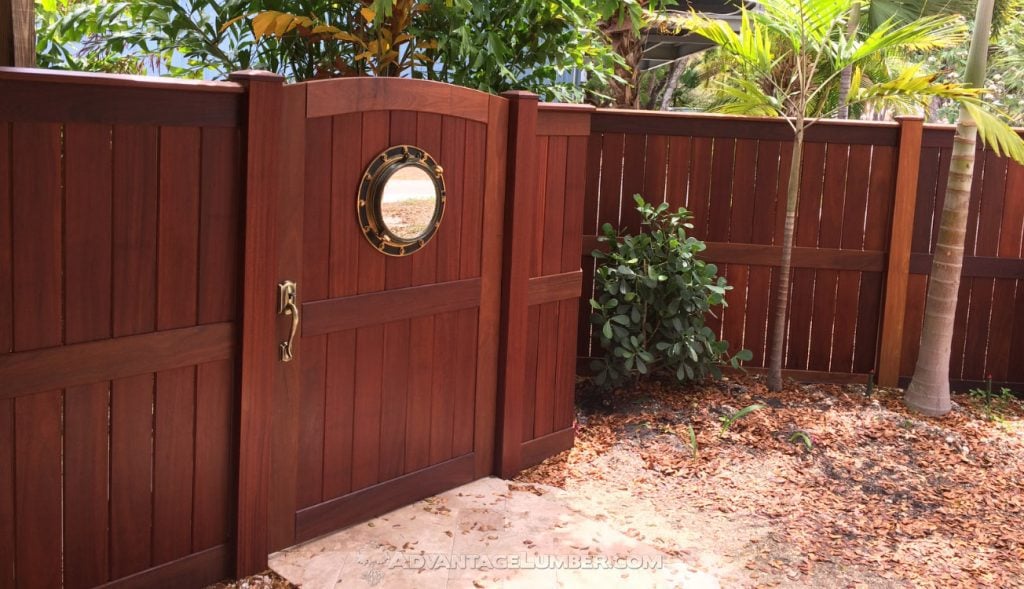
Cumaru is another premium hardwood, similar to Ipe, known for its durability and beautiful color.
Pros:
- Durability: Highly resistant to rot, decay, and insects.
- Aesthetics: Has a warm, golden-brown color that adds a touch of elegance to any fence.
- Low Maintenance: Requires less maintenance than softwoods.
- Price: It is more affordable than Ipe.
Cons:
- Cost: More expensive than softwoods and some other hardwoods.
- Installation: Like Ipe, it is dense and can be difficult to install.
Tigerwood
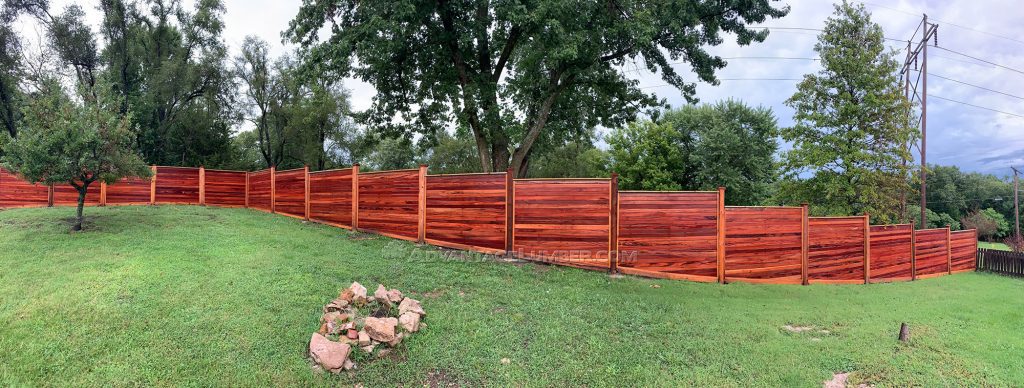
Tigerwood is a striking hardwood known for its unique grain pattern and color variations.
Pros:
- Aesthetics: Offers a unique and exotic look with its rich colors and striking grain patterns.
- Durability: Resistant to rot, decay, and insects.
- Low Maintenance: Requires less upkeep than softwoods.
Cons:
- Cost: It is a premium option and comes with a higher price tag but currently you will probably find it’s not that much more than cedar.
- Variability: Its color and grain pattern can vary significantly, which may not be suitable for all preferences.
Conclusion
The choice of wood for your fence depends on your budget, aesthetic preferences, and maintenance willingness. Pressure-treated pine and cedar are great options for those looking for a balance between cost and durability, while premium hardwoods like Ipe, Cumaru, and Tigerwood offer unmatched durability and a luxurious appearance, albeit at a higher price point. Regardless of your choice, proper installation and regular maintenance are key to ensuring the longevity and beauty of your wood fence.
